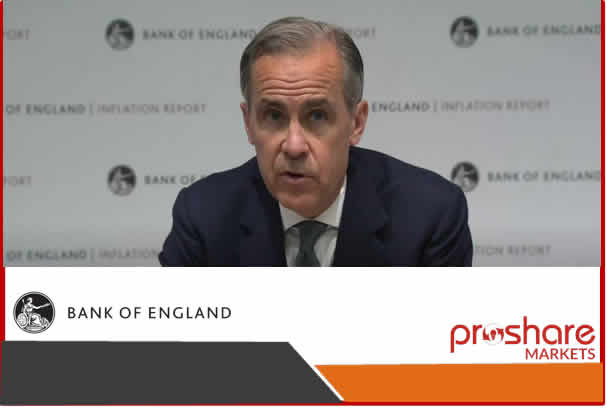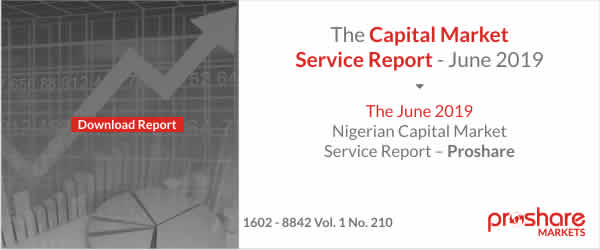Thursday, July 11, 2019 /12:25PM / By Bank of England / Header Image Credit: Bank of England
Financial Policy Summary
TheFinancial Policy Committee (FPC) aims to ensure the UK financial system isresilient to, and prepared for, the wide range of risks it could face — so thatthe system can serve UK households and businesses in bad times as well as good.
Theresilience of the UK financial system to Brexit
Thecore of the UK financial system, including banks, dealers and insurancecompanies, is resilient to, and prepared for, the wide range of risks it couldface, including a worst-case disorderly Brexit.
Theperceived likelihood of a no-deal Brexit has increased since the start of theyear.
•Increased Brexit uncertainties have put additional downward pressure on UKforward interest rates and led to a decline in the sterling exchange rate andan underperformance of UK-focused equities. In markets that are particularlydependent on foreign investors — notably commercial real estate and leveragedlending — investment into the UK was much weaker in 2019 Q1 than in recentyears.
TheUK banking system remains strong enough to continue to lend through the widerange of UK economic and financial shocks that could be associated with Brexit.
•Actions by businesses and authorities since November have resulted in someimprovement in the preparedness of the UK economy for a no-deal Brexit.However, material risks of economic disruption remain.
•The FPC continues to judge that its 2018 stress test of major UK banks wassufficiently severe to encompass the wide range of UK economic and financialshocks that could be associated with Brexit. Overall, the stress scenario wasmore severe than the global financial crisis.
•Major UK banks demonstrated their resilience to that stress scenario. Since thestress test they have maintained Tier 1 capital levels of around 17% of risk-weightedassets — more than three times higher than before the global financial crisis.
TheFPC is maintaining the UK countercyclical capital buffer rate at 1%.
•The underlying vulnerabilities (excluding Brexit) that can amplify economicshocks have not changed materially since November and remain at a standardlevel overall in the UK. Despite continued signs of strong risk appetite fromcreditors and lenders, total UK private non-financial sector credit growth hasnot been rapid and debt-servicing burdens remain low.
•The FPC stands ready to move the UK countercyclical capital buffer (CCyB) ratein either direction as economic conditions and the overall risk environmentevolve. If a major economic stress were to materialise, the FPC is prepared tocut the UK CCyB rate, as it did in July 2016. In the absence of such a stress,the FPC remains vigilant to developments, particularly in the domestic creditenvironment.
Mostrisks to UK financial stability from disruption to cross-border financialservices in a no-deal Brexit have been mitigated.
•Extensive legislative and other preparations made by UK authorities and firmsahead of March will apply at the end of October. UK households and businesseswill be able to use existing and new services from EU financial institutions.
•UK-based firms have made further preparations to be able to serve EU clientssince the extension in March. It is important that they continue to do so toreduce further the risks of disruption.
•However, in the absence of further action by EU authorities, some disruption tocross-border financial services is possible. Although such disruption wouldprimarily affect EU households and businesses, it could amplify volatility andspill back to the UK in ways that cannot be fully anticipated or mitigated.
Financialstability is not the same as market stability. Significant volatility and assetprice changes are to be expected in a disorderly Brexit.
•In a disorderly Brexit, a range of UK asset prices — including the sterlingexchange rate, equities, corporate and government debt and bank funding costs —would be expected to adjust sharply, tightening financial conditions for UKhouseholds and businesses
•With over £1 trillion of high-quality liquid assets, major UK banks are able tomeet their maturing obligations for many months without accessing wholesalefunding or foreign exchange markets. As a further prudent precaution, the Bankof England maintains operations to lend in all major currencies on a weeklybasis.
Irrespectiveof the particular form of the UK’s future relationship with the EU, andconsistent with its statutory responsibilities, the FPC will remain committedto the implementation of robust prudential standards in the UK. This willrequire maintaining a level of resilience that is at least as great as thatcurrently planned, which itself exceeds that required by international baselinestandards, as well as maintaining UK authorities’ ability to manage UKfinancial stability risks.
Globalrisks
Therisks to the global outlook have increased during the first half of the year.
•Rising trade tensions have resulted in declining business confidence and posematerial downside risks to global output growth.
Theimpact of these risks would be amplified by continued material underlyingvulnerabilities.
•Credit growth in China continues to outpace nominal income growth and debt ismore than 200% of GDP. Some emerging market economies with large currentaccount deficits or high levels of debt denominated in foreign currenciesremain vulnerable to renewed capital outflows.
•In global financial markets, risk-free interest rates have fallen markedly andare consistent with more pessimistic expectations of economic growth. Incontrast, measures of compensation for credit risk in corporate bond and loanmarkets appear to factor in a relatively benign economic outlook.
•US corporate debt is above pre-crisis levels as a share of GDP and, in partreflecting rapid growth of leveraged lending, the share of debt owed by highlyleveraged US companies has reached pre-crisis levels of above 40%.
Thecore of the UK banking system remains resilient to these global risks.
•Major UK banks were subjected to a severe scenario for the global economy inthe 2018 stress test that reflected these underlying vulnerabilities. World GDPcontracted by 2.4% over the first year of that scenario and Chinese GDPcontracted by 1.2%. Banks were assumed to lose more than 10% of their exposuresto large non-investment grade US and UK companies. Major UK banks showed theywere resilient to that scenario.
•This test on global exposures was of a severity that encompassed a worst-casescenario for global trade tensions. All implemented and contemplated tariffmeasures, combined with a severe business confidence shock and a sharptightening in global financial conditions, could slow global GDP growthmaterially but would be unlikely to cause the outright fall in global outputthat banks were tested against.
•Even if a protectionist-driven global slowdown were to spill over to the UK atthe same time as a worst-case disorderly Brexit, the FPC judges that the coreUK banking system would be strong enough to absorb, rather than amplify, theresulting economic shocks.
Thefuture of finance
TheFPC welcomes the recent van Steenis review on the Future of Finance and theBank’s response.
Paymentsare currently a focal point for innovation. Consistent with its mandate, theFPC will aim to ensure that systemically important payment systems supportfinancial stability, while allowing competition and innovation in payments tothrive. To do this, the FPC will:
•Assess developments in the scope and nature of regulation for payments andother innovative financial services to ensure the approach reflects theirsystemic importance.
•Assess risks to the UK financial system associated with the use of tokens andother assets used to facilitate new payment options and appropriate safeguardsfor their use to maintain financial stability and the supply of finance to theeconomy.
•Review the Bank’s proposals on the appropriate level of access to its paymentsinfrastructure and balance sheet in order to ensure that access supports fullythe stability and resilience of the system while also allowing innovation inpayments.
Inthe 2021 biennial exploratory scenario, the Bank will stress test the UKfinancial system’s resilience to the physical and transition risks of climatechange. It will gather views on the design of the exercise and, as a firststep, will publish a discussion paper in Autumn 2019.
•Financial stability risks from climate change arise both from the physicalrisks associated with the increased frequency of extreme weather events andfrom the transition to a carbon-neutral economy.
•This exercise will integrate climate scenarios with macroeconomic and financialsystem models. It will motivate firms to address data gaps and to develop cutting-edgerisk management consistent with a range of possible climate pathways: rangingfrom early and orderly to late and disruptive.
•The discussion paper will cover issues such as the coverage of the test, thenature of scenarios considered, the appropriate time horizon and disclosure ofresults. This will allow the Bank to develop the scenarios in consultation withrisk specialists from across the financial sector, climate scientists, otherindustry experts and other informed stakeholder groups.
Tacklingvulnerabilities in open-ended funds
Open-endedinvestment funds globally play an increasing and important role in theprovision of finance. The FPC continues to judge that the mismatch betweenredemption terms and the liquidity of some funds’ assets has the potential tobecome a systemic issue.
•Many funds offer daily redemptions while investing in assets that can takeweeks or months to sell in an orderly way. They offer redeeming investors aprice linked to the market price of the funds’ assets despite having aredemption period much shorter than would be needed to realise those marketprices, particularly in stress.
•This can create an incentive for investors to redeem when they expect others todo so. This self-reinforcing dynamic can lead to so many investors rushing toredeem that funds have no choice but to suspend all redemptions. Furthermore,fear of possible suspension reinforces the incentive to redeem.
•In 2015, the FPC highlighted vulnerabilities associated with funds’ liquiditymismatch. These go beyond any single market or fund type. Large-scaleredemptions from funds could test markets’ ability to absorb asset sales,amplifying price moves, transmitting stress to other parts of the financialsystem, and disrupting the availability of finance in the real economy.Although to date these vulnerabilities have not created financial instability,they could do so under severe stress and are likely to become more important ifmore funds expand into less liquid assets.
TheBank and the FCA will together assess how funds’ redemption terms might bebetter aligned with the liquidity of their assets in order to minimisefinancial stability risks without compromising the supply of productivefinance.
•This is a global issue. For that reason the FPC supported the FinancialStability Board’s 2017 recommendation that funds’ assets and investmentstrategies should be consistent with their redemption terms. However,subsequent work by the International Organization of Securities Commissions didnot prescribe how this should be achieved.
•Although funds are not permitted in general to favour one group of investorsover another, there are no well-defined requirements for how this should bedone. The Bank and FCA review will examine the costs and benefits of aligningredemption terms, including pricing and notice periods, with the typical timeit takes to realise market prices for funds’ assets in normal and stressedmarket conditions.
•The review will also assess the effectiveness of measures that are already usedto deal with misalignment of redemption terms and asset liquidity, such asswing and fair value pricing and suspensions.
Thetransition away from Libor
Thecontinued reliance of global financial markets on Libor poses risks tofinancial stability that can be reduced only through a transition toalternative benchmark rates by end-2021.
Thereis no justification for firms continuing to increase their exposures to Libor.The pace of market participants’ transition efforts now needs to accelerate andthe FPC will monitor progress closely.
•The smoothest transition will be one in which market participants: cease newissuance of Libor-linked contracts; identify all existing contracts withoutappropriate fallback clauses and rectify this to the greatest extent possible;and actively reduce legacy exposures by negotiating their transition to newrates.
•It is not in firms’ own interests to have a large stock of legacy contractsthat will become subject to significant legal uncertainty beyond 2021. Thereare advantages to renegotiating contracts to refer to alternative referencerates well in advance of end-2021.
•Well-managed firms are expected to lead the transition. All firms thatresponded to the PRA’s and FCA’s Dear CEO letter have now appointed a SeniorManager accountable for overseeing the transition.
Exploringthe UK financial system’s response to a severe liquidity stress
In2019, the Bank will conduct a biennial exploratory exercise to explore theimplications of a severe and broad-based liquidity stress affecting major UKbanks simultaneously.
•This exercise will not set new liquidity standards for banks. Banks holdregulatory liquidity buffers that the FPC expects to be used in a stress.
•The exercise will explore how the reactions of banks and authorities to thestress would shape its impact on the broader financial system and the UKeconomy. It will help to guide the PRA’s approach to supervision and the Bank’sprovision of liquidity in stressed conditions.
•The Bank intends to publish the results of the exploratory exercise inmid-2020.
Related News
- Turkey Ousts Central Bank Chief Who Drew Ire for Holding Rates
- Is the West Africa Single Currency Ambition Feasible?
- No-Deal Brexit More Likely; Path Ahead Remains Unclear
- London Cedes World’s Financial Centre Status To New York As Brexit Worries Weigh On The City
- UK Inflation Report: Bank Of England Warns Of 'More Frequent' Rate Increases Than Expected
- Chancellor Of The Exchequer Launches Search For Next Governor Of The Bank of England
- Banks in AAA Jurisdictions Face Rising Household Debt Risk
- China's Big Four Banks Dominate The Top of The World’s 100 Largest Banks
- Brexit – The European Council (Art. 50) Conclusions, 21 March 2019
- Bank Rate Maintained at 0.75% - March 2019 – Bank of England
- Federal Reserve Issues FOMC Statement – Mar 2019
- New Financial Report: Brexit and The City – The Impact So Far
- An Open Letter to Theresa May by Ahmed Sule, CFA
- Global Trade Growth Slows Down To 3.3% In 2018
- Minutes Of The Federal Open Market Committee, January 29-30, 2019 - Key Takeaways
- Eurozone 2019 Growth Forecast Cut to 1%; ECB Could Restart QE
- Open-Ended Bond Funds a Potential Risk to Financial Stability - Fitch
- Resolving Venezuela's Debt Default to Take Years
- Fed's Balance Sheet Still Likely to Shrink Through 2020
- Global Government Debt Reaches USD66trn, Driven by Emerging Markets - Fitch
- Federal Reserve Issues FOMC Statement Jan 2019
- Chinese Economy to Experience a Slowdown in 2019 - Fang Shanghai, CSRC
 Lagos, NG • GMT +1
Lagos, NG • GMT +1











 2401 views
2401 views








 Sponsored Ad
Sponsored Ad
 Advertise with Us
Advertise with Us









